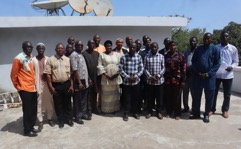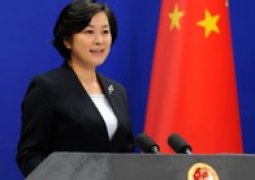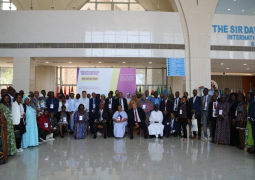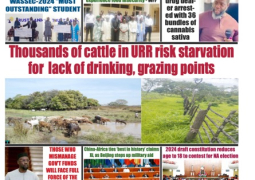
In 2008, the Heads of State and Governments of the African Union Assembly in Sharm El-Sheikh, mandated the African Ministers Council on Water (AMCOW), to report on the progress in implementing its commitment to water and sanitation.
Consequently, the Council in 2016 developed the Africa Water and Sanitation Sector Monitoring and reporting System (WASSMO), which is a web-based system for monitoring and reporting progress in the water and sanitation sector.
The system is designed to assist AMCOW to track the progress towards the attainment of Sharm El Sheikh, AfricaSan and Ngor Commitments, as well as the African Water Vision 2025 and the Sustainable Development Goal 6 target by 2030.
Deputising for the permanent secretary at the Ministry of Fisheries and Water Resources, Deputy Permanent Secretary Fanta B.S. Manneh said her ministry was honoured to coordinate the establishment of the National Coordination Platform (NCP) for effective stakeholder collaboration to strengthen data sharing in the water and sanitation sector. She pointed out that accurate, reliable, and up-to-date data is critical in implementing effective policies and programmes that promote socio-economic development in Africa.
According to the deputy permanent secretary, the data exercise is expected to complete Africa's baseline data for water and sanitation, through gathering previous and current outstanding data sets on water and sanitation sector progress from the years 2016 to 2022.
“---, your usual cooperation will yield a better input for enabling evidence-based decision-making and planning for our country and Africa as a whole,” the DPS B.S. Manneh said.
The director of the Department of Water Resources, Lamin Mai Touray, said the mission of the Department of Water Resources is to “regulate and manage the sustainable utilisation of water resources, coordinate related policies and provide timely and accurate weather and climate data and information to safeguard population and promote food security through effective participation among other things. He said the legal framework which delegates these mandates is the National Water Resources Council Act of 1979.
“Therefore, to effectively manage water and related resources, there is a need for adequate data and information to enhance proper planning through evidence-based decision making,”
Mr. Touray noted that over the years, the department has partnered with key stakeholders to collect various data at international, regional and national levels, to support the tracking of the various developmental targets. The director applauded the African Minister’s Council on Water (AMCOW) for the initiative.
He expressed appreciation for the overwhelming participation of the stakeholders and further encouraged them to be more committed to the initiative for the benefit of all.





